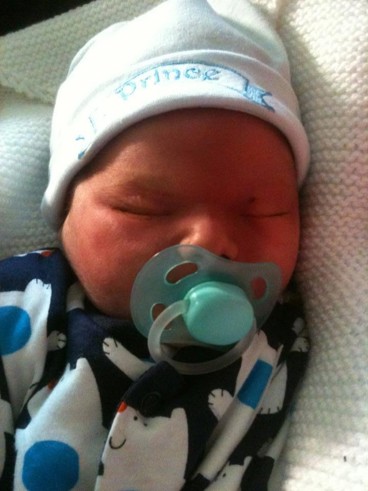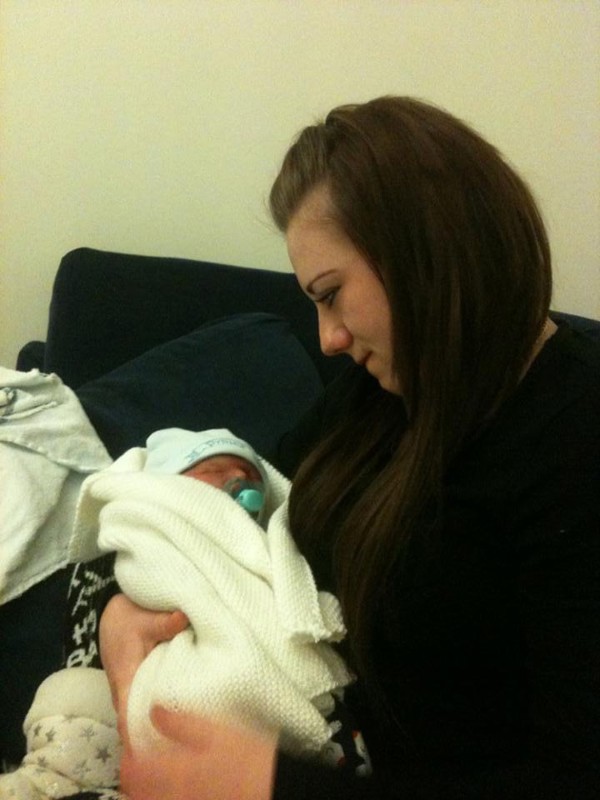
Young mother's 10-year wait for Nottingham University Hospitals Trust to admit failures led to the stillbirth of her son
Nottingham University Hospitals Trust has admitted to a mother the failings that led to her son’s stillbirth, after a decade.
Posted on 16 October 2024
Trigger warning: Discussion of baby loss
The trust has admitted to Hayley Brunt of Kirkby-in-Ashfield that her son Kaiden’s life would have been saved if staff had not failed to follow up signs of his abnormal heart rate during his teenage mother’s pregnancy.
During the course of the legal action into Kaiden’s death, it also came to light that the trust had conducted its own investigation into the stillbirth but had failed to tell Hayley or her parents.
The trust admitted to Hayley’s lawyers that had Kaiden’s heart rate been investigated further and action taken, she would have been offered an induced birth which would have avoided his death.
Hayley was only aged 15 when Kaiden died at 39 weeks and four days. She was traumatised by losing Kaiden and blamed herself for what happened. This led to her mental health suffering and her making attempts to end her life.

Hayley had not encountered any issues in her first pregnancy until late January 2013, when at 27 weeks she began experiencing reduced fetal movements. While this was checked at hospital and Hayley was given assurances not to worry, in late February she began to experience vaginal bleeding. This resulted in a two-night hospital stay before Hayley returned home with more assurances about her own and her unborn baby’s health.
Hayley experienced a second episode of reduced fetal movement in March and a third episode in early April. On both occasions she visited hospital for reassurance and was sent home. Hayley says she felt the midwives and doctors dismissed her concerns due to her young age.
On 22 April 2013, Hayley visited the hospital again as she felt her baby wasn’t moving as much. She was one week away from her due date and she was worried something was wrong as she also had a headache and was feeling dizzy. She was fitted with a CTG (cardiotocography) belt to record the baby’s heart rate.
Despite the CTG showing signs of heart rate abnormality, which Hayley recalls the midwife verbally noting, the test was not continued. Hayley, who as a teenager was considered a high-risk pregnancy, was sent home and asked to attend the following day for a growth scan.
The trust’s own guidelines for the management of mother’s experiencing reduced fetal movements after 26 weeks said that the option of an induced birth should have been discussed with Hayley before she was sent home, but this did not happen.
After attending the growth scan on 23 April, Hayley was again asked to return the following day to meet with the consultant obstetrician.
At the appointment on 24 April, a scan showed that Kaiden had died.

Hayley was sent home with an appointment to return to the hospital two days later for an induced delivery of her baby.
Following the painful delivery, despite having suffered the tragedy of stillbirth, Hayley had to stay on the maternity ward alongside new mothers. She recalls the sound of newborn babies and feeling inconsolable.
A funeral was held for Kaiden. In the following days, Hayley was informed that the death was due to her placenta not working properly.
Hayley blamed herself for Kaiden’s death and experienced deep struggles with her mental health over the following years. She felt she had nothing to live for, she became suicidal and made attempts to take her own life.
In December 2022, Hayley received a letter from Anthony May, chief executive of Nottingham University Hospitals NHS Trust. The letter apologised for failings in the trust’s maternity care. It also explained that Kaiden’s stillbirth had been identified as a relevant case for the independent review of the trust’s maternity services conducted by Donna Ockenden.
After receiving this letter, Hayley contacted the medical negligence team at law firm Leigh Day. During the investigation of her claim, it came to light that not only had the trust failed to follow their own internal guidance, but it had conducted its own investigation into Kaiden’s stillbirth. They did not tell Hayley or her parents about any of this.
A Letter of Claim was sent to Nottingham University Hospitals NHS Trust in February 2024 alleging that staff had been negligent in their failure to communicate Hayley’s ongoing reduced fetal movement issues and their failure to continue investigating Kaiden’s heart rate on 22 April 2023, as well as their failure to offer the option of an induced labour.
A Letter of Response from the trust admitted that the CTG measuring Kaiden’s heart rate should have been continued, and that had Hayley been offered an induction, then Kaiden’s death would have been avoided.
Hayley Brunt said:
“The deep grief I experienced over my son’s death resulted in my mental health spiralling over many years. I felt that because I was just 15 years old, my feelings were disregarded and I was treated badly. I believe one of the reasons I wasn’t given the proper care was because of my age.
“Losing Kaiden destroyed my life for many years. I blamed myself for his death and only because of the Donna Ockenden inquiry did I find out about how much had gone wrong in my maternity care.”
Leigh Day solicitor Adam Lamb, who represents Hayley, said:
“The loss of baby Kaiden was entirely avoidable and has had a devastating impact on my client’s life. Hayley was already vulnerable and considered high risk due to her young age but staff dismissed her concerns. Baby Kaiden died in 2013 and it wasn’t until late 2022 that Hayley was informed an independent investigation into her maternity care and Kaiden’s stillbirth was taking place. We are pleased the trust has admitted responsibility for Kaiden’s stillbirth and we look forward to working with them to conclude the case. While nothing can truly make up for what Hayley has gone through, we hope that this admission from the trust can help ease the blame that she has put on herself in the years since Kaiden’s sad death.”




